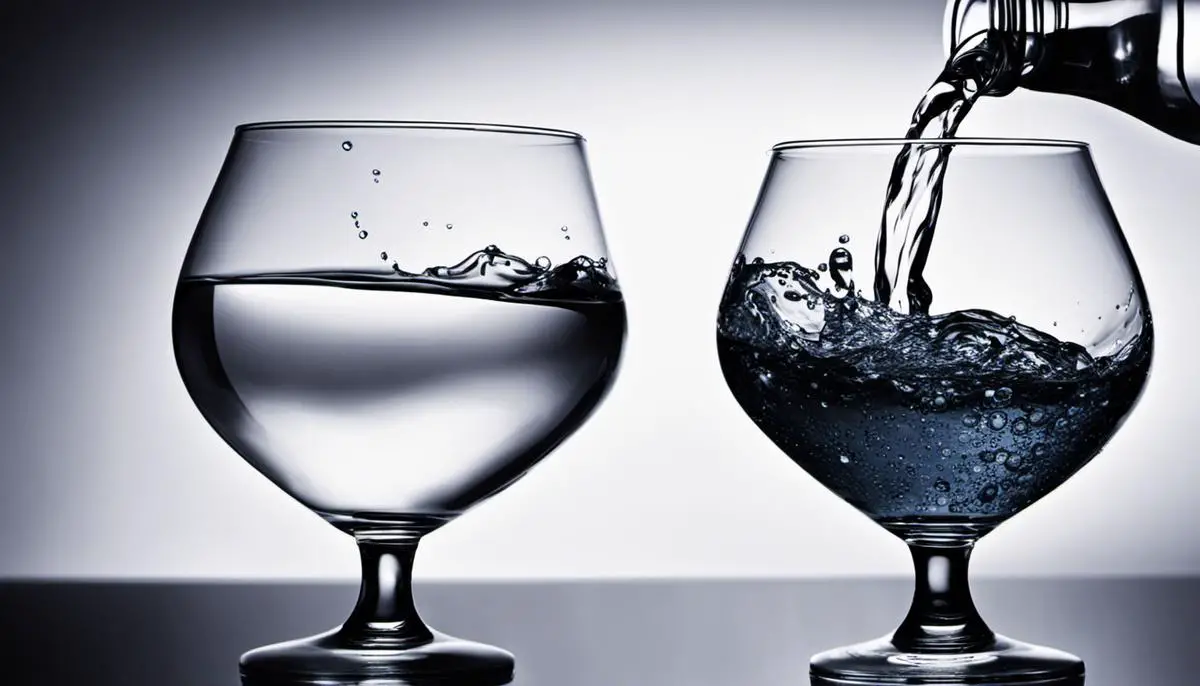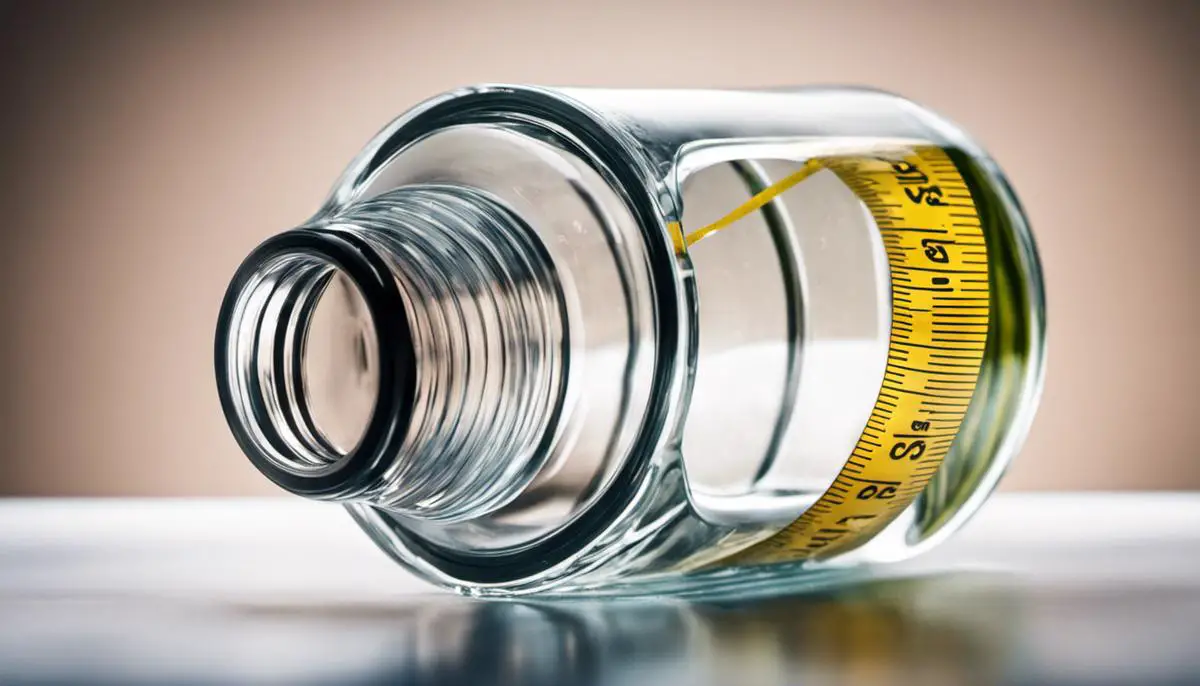Hydration plays a critical role in maintaining our overall health, ranging from basic bodily functions to optimal cognitive performance. An adequate intake of fluids every day is recommended by health authorities, but the question that often arises is what counts towards this fluid intake? More specifically, can our daily cup(s) of coffee and tea be considered a contribution to our hydration needs? This paper delves into the world of hydration recommendations, caffeine’s role in hydration, and an intriguing examination of coffee and tea as potential sources of hydration. As we navigate through these points, we aim to create a comprehensive understanding of how your regular cup of joe or soothing tea affects your body’s hydration status.
Overview of Fluid Intake Recommendations
Recommended Daily Fluid Intake
Health authorities such as the U.S. National Academies of Sciences, Engineering, and Medicine recommend a daily fluid intake for adults at about 3.7 liters (or about 13 cups) for men and 2.7 liters (about 9 cups) for women. These amounts include all beverages and foods consumed in a day. Fluid intake isn’t just about quenching thirst; it’s about maintaining a healthy bodily function. Adequate hydration is crucial as it supports digestion, nutrient absorption, skin hydration, and body temperature regulation. Also, it aids in cognitive function, joint lubrication, and kidney function, helping to flush toxins out of the body.
Understanding Hydration from Coffee and Tea
Many are inclined to believe that coffee and tea, due to their mild diuretic effects, should not be counted towards the recommended daily water consumption. Current studies, however, suggest that moderate intake of these beverages does not significantly impact the body’s hydration level or water balance. Contrary to popular belief, while coffee and tea do raise the amount of urine output, they do not lead to dehydration. The water included in these beverages does indeed contribute to the body’s hydration. As such, moderate consumption of coffee and tea can count toward your daily fluid intake. That being said, these beverages should not serve as your main source of hydration, as their caffeine content may result in other health issues when consumed excessively.

Caffeine and Hydration
The Complex Relationship Between Caffeine and Hydration
One key component of coffee and tea is caffeine, which is often accused of having a diuretic effect and causing dehydration. Diuretic drugs indeed facilitate fluid loss by increasing urination and reducing the body’s water retention, hence cultivating the belief that drinking caffeinated beverages could lead to dehydration. However, the dynamics of caffeine and hydration are multifaceted and complex.
Caffeine’s diuretic power varies considerably and is largely influenced by individual factors such as tolerance built over time and consumption frequency. For instance, regular caffeine users might develop a tolerance that diminishes its diuretic effects, which means habitual coffee and tea drinkers are less likely to see a significant rise in urine output. Recent research also suggests that the water content in these drinks counters effects of dehydration, helping them contribute to, rather than reduce, daily fluid needs. According to these findings, moderate consumption of caffeinated beverages doesn’t notably affect hydration status. Consequently, coffee and tea can contribute to daily water intake for most people.
It is imperative to note, however, that it’s the water in these drinks, not the caffeine, that provides the hydration. Overconsumption of caffeine can still prompt diuretic effects. It’s also significant to point out that while coffee and tea can assist in daily hydration, they shouldn’t serve as the primary source of fluids. Hydration requirements differ between individuals based on factors like the climate, physical activity, and body weight, among others. This underlines the need for a diverse approach towards maintaining hydration.

Coffee and Tea as Sources of Hydration
Coffee and Tea: Hydrating Beverages or Just Caffeine Vehicles?
Contrary to popular misconceptions, scientific research has proven that coffee and tea can actually serve as contributors to one’s daily fluid intake. Regardless of their caffeine content, coffee and tea do not prompt dehydration. Indeed, a 2014 report published by PLoS One revealed negligible differences in the hydration levels of coffee drinkers compared to those who drank an equivalent quantity of water.
Furthermore, those who regularly drink coffee or tea may encounter fewer diuretic effects than infrequent drinkers. In addition, coffee and tea inherently contain substantial quantities of water, with an average cup of coffee comprising approximately 95% water and a cup of tea containing around 99% water. In this context, when consumed in comparable volumes, coffee and tea can essentially provide the same hydration as water.
However, this should not be taken as a carte blanche to exclusively rely on coffee or tea for hydration. Deriving some hydration benefits from these drinks doesn’t negate the fact that they contain caffeine – a diuretic that can urge the kidneys to eliminate excess sodium and water from one’s body. Additionally, when imbibed in greater quantities, coffee and tea bear potent diuretic properties, necessitating the need for water and other non-caffeinated beverages to balance out caffeine’s potential diuretic effects. The takeaway? Moderate amounts of coffee or tea consumed in conjunction with a varied diet won’t lead to fluid loss. Instead, they can help satisfy your daily hydration requisites.

Through the exploration of fluid intake recommendations, the hydration impact of caffeine and the potential of coffee and tea to contribute towards hydration, we have opened up an interesting dialogue. It is clear that while these caffeinated beverages do have a diuretic effect, their ability to contribute significantly to daily fluid intake cannot be completely disregarded. It is important for each individual to strike their own balance, keeping in mind their body’s reactions and the caffeine content in different types of coffee and tea. As we continue to sip our preferred brews, let’s do so with an informed perspective on their role in our hydration and overall health.
